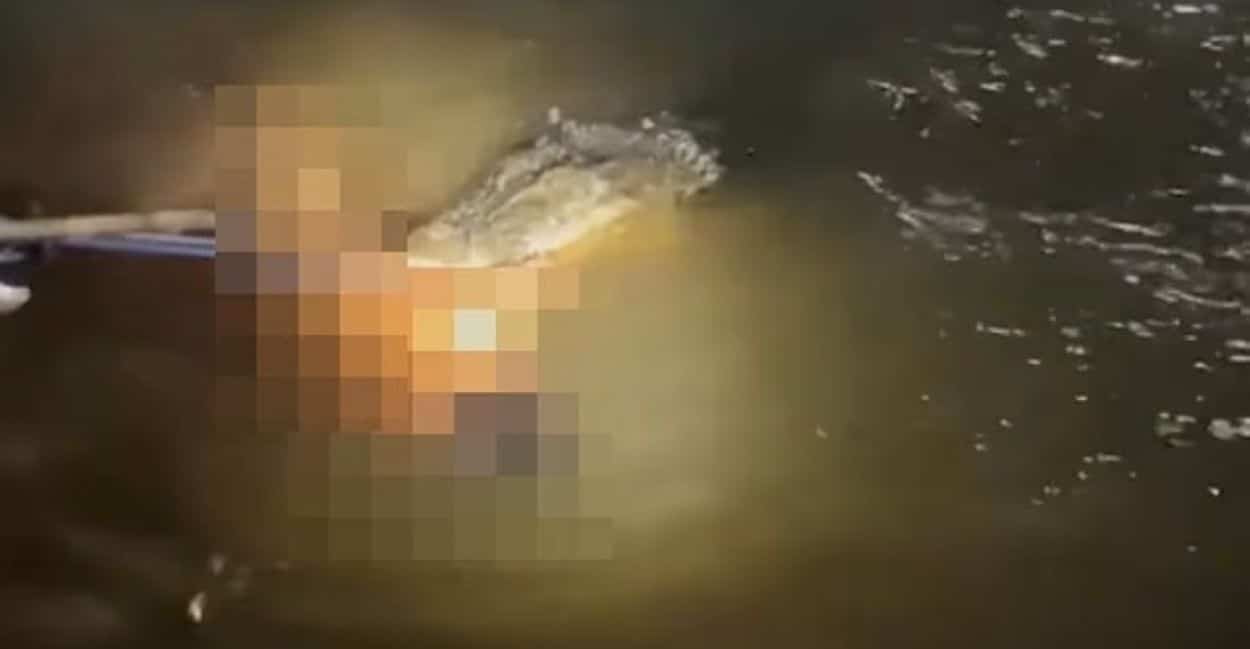A crocodile attack resulted in the death of Arifuddin, a 53-year-old father of four, while he was bathing with relatives in the Bulete River in South Sulawesi, Indonesia, according to a report by DailyMail Australia. A viral video captured the moment when the crocodile seized his leg and pulled him underwater as he reached out in desperation, despite the efforts of villagers to intervene.
Emergency teams arrived in Wajo Regency around 6 PM local time and found a crocodile still holding Arifuddin’s body in the muddy waters. After several hours of monitoring the area, the reptile moved about a mile away, allowing locals to use a makeshift snare and rocks to drive it off. This enabled them to recover Arifuddin’s remains for burial. Jerry Saputra from the Pitumpanua Fire Rescue Team confirmed the rapid escalation of the attack.
Horrifying moment father is snatched by crocodile and dragged to his doom in front of his family as they bathe in river… before bystanders bravely battle the beast to recover the victim's body https://t.co/nQ5jjE78gy
— Daily Mail Australia (@DailyMailAU) August 15, 2025Locals expressed shock, noting the Bulete River, used for bathing and laundry, was not previously known as a crocodile habitat. Indonesia’s 14 crocodile species, particularly aggressive estuarine crocodiles, are increasingly driven inland by overfishing, coastal habitat loss, and tin mining, heightening human-wildlife conflicts. Similar incidents, including attacks on a schoolboy and a grandfather in July, underscore the growing threat.
Experts attribute the surge in attacks to environmental degradation, with overfishing and habitat destruction pushing crocodiles closer to human settlements. The incident highlights the need for better wildlife management and public safety measures in rural Indonesia, where reliance on rivers persists. Authorities may face pressure to address these risks.
The tragic crocodile attack on Arifuddin emphasises the escalating danger of human-wildlife conflicts in Indonesia, driven by environmental changes. It calls for urgent safety and conservation strategies.






